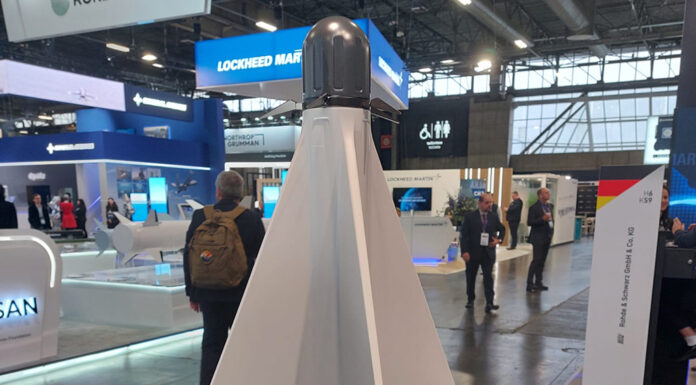Going through a generation shift, Elbit Systems focuses its activities on the ‘growth engines’ that will take it through the next levels, in the 2020’s.
“The products that form our backlog today are the results of our past investments. We usually talk about ‘growth engines’ when discussng where we want to be in the future, where we want to grow in ten years time” Joseph Ackerman, Elbit President & CEO told Defense Update. “To sustain such foresight you need accurate forecasting and understanding of future market needs and trends. we see C4ISR, particularly applications of wide area dominance or persistent surveillance and intelligence.
Through life support, including training services, logistics and support for complex systems could form another growth engine for us while various aspects oh homeland security should necome another growth trend.” Elbit Systems has been offering advanced capabilities through all these areas in the past, but in the future the company intend to grow and widen its offerings in these fields.
 In recent years Elbit Systems has grown dramatically, leveraging mergers and acquistions (M&A) to sustain rapid growth. “I regard M&A as equal to organic growth, in fact, based on our past experience of merging some 40 acquisitions, growth through M&A nears less risk than Research and Development (R&D) and could get you to your target faster, and often at a lower cost.” Ackerman added. The company’s business philosophy has also changed. “We started as a ‘built to print’ company, evolved into ‘built to spec’ and now, we are positioned as a ‘built for need’ scheme. Today, many customers prefer to define their requirements in broad terms, leveraging more responsibility to the supplier to come up with the most recommended, lowest risk solution.”
In recent years Elbit Systems has grown dramatically, leveraging mergers and acquistions (M&A) to sustain rapid growth. “I regard M&A as equal to organic growth, in fact, based on our past experience of merging some 40 acquisitions, growth through M&A nears less risk than Research and Development (R&D) and could get you to your target faster, and often at a lower cost.” Ackerman added. The company’s business philosophy has also changed. “We started as a ‘built to print’ company, evolved into ‘built to spec’ and now, we are positioned as a ‘built for need’ scheme. Today, many customers prefer to define their requirements in broad terms, leveraging more responsibility to the supplier to come up with the most recommended, lowest risk solution.”
Outsourcing services fall under Elbit Systems training and support programs, offered to air forces and military forces worldwide. “As military organizations are called to trim fat and reduce budgets, old school concepts are scrutinized and non-core plans are outsourced to benefit from what the competitive commercial market can offer” Ackerman said. “Customers requirements for 90% availability can be obtained only through commercial outsourcing” Ackerman said.

In recent years his company has won outsourcing and Private Financing Initiatives (PFI) projects maintaining basic trainers, training helicopters, intermediate and advanced trainers for the IAF and recently announced winning similar activities in Mccedonia. “Simulators are another part of the training which we are covering, not every task has to be done by actual flying, in fact, smoe aspects of training and flight proficiency development should be done on the ground, in realistic simulation. Elbit maintains such facilities under PFI or ‘per use’ basis, reducing operational expenses for training while gaining higher proficiency prior to live training, as crews are better prepared for these final phases.
As for the commercial field, Elbit Systems has recently acquired the US MRO provider M7 which specializes in supporting government and commercial aircraft fleets. “Our synergy with M7 was clear, as they had mastered the MRO activities but did not have electronics systems support which we offer. Together we can offer more comprehensive solutions. “The interest in advanced avionics tailored for the commercial aircraft market is also growing” said Ackerman, acknowledging the company has already sold hundreds of Enhanced Vision Systems, (EVS), civil Head Up Displays (HUD) and avionics to civil fixed wing aircraft and helicopters. “At the early stage, such avionic systems were limited to high end business jets, but today, affordable solutions are available to any operator that requires operating from less developed airfields.”

The latest civilian spin-off is the Commercial MUSIC (C-MUSIC) – a directional EO countermeasure suite designed to protect aircraft and helicopters from man-portableanti-aircraft air defense missile systems (MANPADS). “C-Music in addressing such threats, becoming more acute. Its latest configuration is unveiled here at the Paris Airshow. The system was selected for deployment on all the aircraft operated by Israeli airlines, and have also gained initial international orders.




















